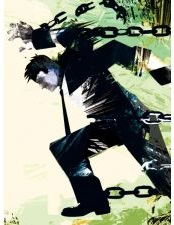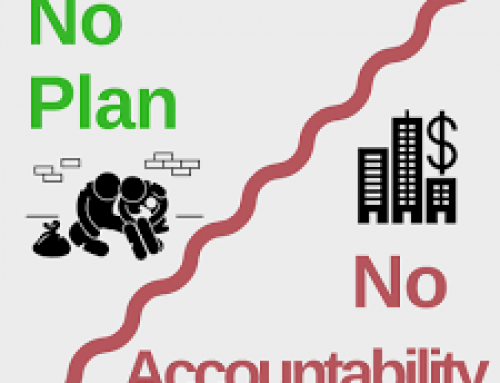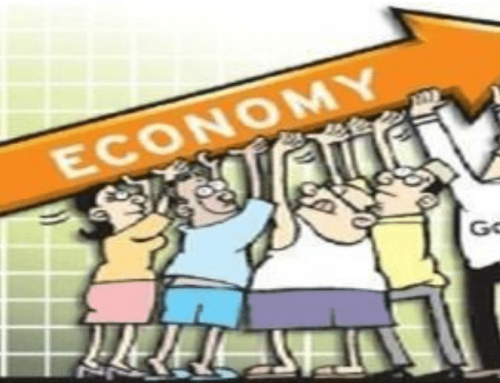May 9, 2013
By: Kelly Diamond, Publisher
A link flew across my Facebook page the other day suggesting I could vote with my feet by researching the freedom rankings of each state in the US: or as I call it the “50 Shades of Freedom”.
The 50 Shades of Freedom refers more to the various hues of freedom depending on where you go, but — spoiler alert — there is no perfectly free state, just less oppressive ones contingent upon concession other freedoms.

1. Fiscal Policy (Weighted at 35.3%)
Tax Burden (28.6%)
Government Employment (2.8%)
Government Spending (1.9%)
Government Debt (1.2%)
Fiscal Decentralization (0.9%)
2. Regulatory Policy (Weighted at 32%)
Freedom from Tort Abuse (11.5%)
Property Right Protection (7.6%)
Health Insurance Freedom (5.4%)
Labor Market Freedom (3.8%)
Occupational Licensing Freedom (1.7%)
Misc. Regulatory Freedom (1.3%)
Cable & Telecom Freedom (0.8%)
3. Personal Freedom (Weighted at 32.7%)
Victimless Crime (9.8%)
Gun Control Freedom (6.6%)
Tobacco Freedom (4.1%)
Alcohol Freedom (2.8%)
Marriage Freedom (2.1%)
Marijuana & Salvia Freedom (2.1%)
Gambling Freedom (2.0%)
Education Policy (1.9%)
Civil Liberties (0.6%)
Travel Freedom (0.5%)
Asset Forfeiture Freedom (0.1%)
Campaign Finance Freedom (0.2%)
Unfortunately, there is no home-run state. I thought for sure that New Hampshire had a lot going for it, and it does, but it was beat out by three other states overall! The Free State Project had good reason to pick New Hampshire when it did, but sadly, while that movement has offered a good amount of folks a likeminded geography, the state overall has hiked its spending in the form of “temporary stimulus funding” from the federal government, assuming more debt, and hiking up certain taxes and fees.
While New Hampshire fairs well on economic and personal freedoms, it still suffers from heavy regulations and a needlessly burdened labor market. Zoning laws preclude more affordable housing, and the lack of a right-to-work law coupled with a universal workers’ compensation mandate make it tough to have a thriving labor market. We have one of the highest business profits taxes in the nation! And New Hampshire subsidizes businesses when it should be leaving them alone. Overall, it is slipping in its rankings as having any advantage over the other states in fiscal freedom.
Perhaps we should rethink the whole “Live Free or Die” tagline as the state’s policies seem to be headed in a very grim direction…
Tennessee beat New Hampshire simply with its low overall state tax burden: 7.5% (c.f. New Hampshire at 10%). Occupationally, the licensing laws of Tennessee are quite prohibitive. Tennessee is a right to work state, but damn, does it have some issues with personal freedom! Their gambling (some of the strictest gaming laws in the union), drinking (highest beer tax in the union), smoking and drug enforcement laws are harsh. And while homeschooling is expressly permitted by statute, the requirements put on homeschoolers is lofty. That does make a little bit of a selling point for New Hampshire in that it offers a tax credit to those who opt for homeschooling or private school. Moreover, Tennessee needs to let go of its centralized stranglehold on utilities. It’s in the dark ages on that front.
So much for being the “Volunteer State”. Nothing voluntary about needing state permission or fearing state sanctions over victimless activity!
What seems to have the Dakota Twins dancing in the top two slots is their fiscal and regulatory policies, more so than their civil and personal liberties. So either you can high tail it over to South and North Dakota to enjoy regulatory and fiscal freedom (comparatively speaking)… while keeping quiet about your personal liberties and staying in line… OR you can join the likes of Alaska and New Mexico, where they really don’t care too much about your personal goings… but given their fiscal and regulatory policies, it would appear you’d be paying for that privilege.
If nothing else, this shows the polarizing effects of our two party system while also highlighting the tyrannical inclinations each side has. Why should anyone have to choose between fiscal and personal liberty? Why should we engage in a system that promotes and forces that choice upon us? How do you vote with your feet, when your choice doesn’t exist on the map?
Sadly, these are rankings within a country that is ranked TENTH in economic freedom globally, and has been on the decline in areas like monetary, fiscal, labor and business freedom. Since early 2009, over ONE HUNDRED major regulatory laws have been introduced, imposing an approximate $46 BILLION burden on the economy. So while you can live in an economically free state, there is no escaping the iron boot of the federal government. And given the fast and loose monetary policies of the U.S. we suffer and impose some major price distortions as well as long term inflationary risks.
Then you have Hong Kong holding the top slot for NINETEEN consecutive years! That country is small, doesn’t have any natural resources to speak of, and manages to do okay. How is it that a country nestled in the armpit of communist China, can do BETTER than the US? By all counts, America has an obscene advantage over Hong Kong in terms of labor force, resources, money… yet we fail. Shall we learn why……?
Hong Kong has a flat tax system. You a person? 15%. You a business? 16.5%. No ifs ands or buts. Make what you want, this is your tax rate. Its judiciary is far removed from its executive and legislative counterparts’ influences with a low tolerance for cronyism and corruption. It has an uber transparent and efficient entrepreneurial environment: straight-forward with no initial capital required. Its trade policies mirror that of its start-up and small business regimes in efficiency and transparency as it has a zero tariff rate and minimal non-tariff barriers. Finally, it has a transparent financial system and well-capitalized banks.
Basically, what makes Hong Kong great is that it is NOTHING like the US! *face/desk*
The Fraser Institute corroborates the findings of the Heritage Foundation but has the US ranked even LOWER. I think Finland got us beat when they decided to prosecute the criminals in their banks and government rather than protect them and bail them out.
Parents of ugly children still think their kids are the most beautiful beings on earth. And citizens of tyrannical countries have a similar complex in that they cannot objectively view their nation as anything less than great. Statistically, factually, and empirically the United States is not the paragon of freedom from nearly 300 years ago. It’s a global lesson in “what not to do” or “how to squander your privilege and advantages away”. I WISH our federal and state governments would take a broader view of what really constitutes economic freedom. I WISH our federal and state governments would stop wasting time and money on restricting our personal liberties.
P.S. Here are the links to the full reports, should you be so inclined to see how free we really aren’t:
See where you’re state falls here.
See the details of the Heritage Foundation’s findings here.
See the details of the Fraser Institute’s findings here.




